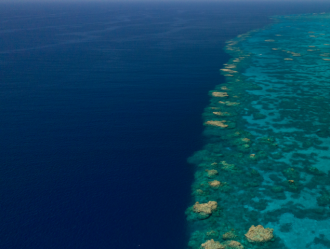News release
From:
BRIEFING ALERT: Highest ocean temperatures for 400 years put the Great Barrier Reef in danger
EMBARGOED NEWS BRIEFING: Briefing concluded - A full recording of the briefing can be found via the link below.
Recent temperatures in the Coral Sea surrounding the Great Barrier Reef (GBR) are the warmest in 400 years putting the reef in danger, according to Australian research. The researchers found that sea surface temperatures in the January to March period of 2024, 2017 and 2020 were the warmest on record for four centuries.
The study used the chemistry of the corals in the Coral Sea to reconstruct ocean temperatures between 1618 and 1995 and combined it with instrument measurements taken from 1900–2024. Using this data they ranked four centuries of summer sea surface temperatures with greater precision than was previously possible.
They found that sea temperatures were relatively cool and stable for hundreds of years, but recent sea surface heat is unprecedented compared to the past 400 years. They also confirmed that human influence is driving this warming. The researchers say their evidence indicates that the GBR is in danger.
Join this embargoed briefing to hear from key authors of the research.
Speakers:
- Dr Benjamin Henley, School of Agriculture, Food and Ecosystem Sciences at the University of Melbourne
- Professor Helen McGregor, School of Earth, Atmospheric and Life Sciences (SEALS) at The University of Wollongong
- Professor Ove Hoegh-Guldberg, School of the Environment at the University of Queensland
Multimedia










 Australia; NSW; VIC; QLD; WA
Australia; NSW; VIC; QLD; WA



